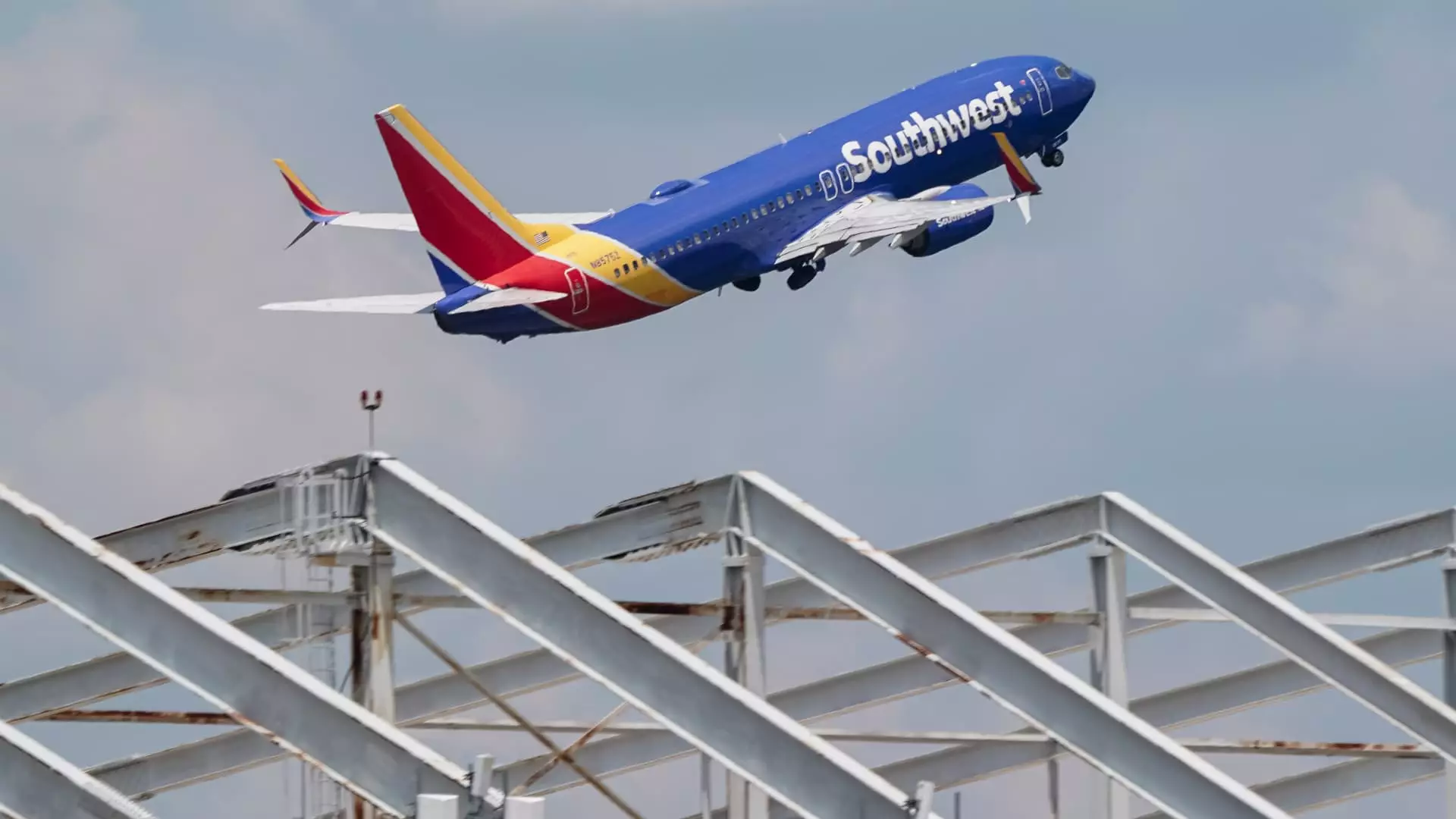Southwest Airlines recently reported its third-quarter financial results, revealing a decline in profit compared to the previous year, yet surpassing Wall Street expectations. The Dallas-based airline’s strategic maneuvers come amid increasing pressure from activist investors and a highly competitive travel market. Despite a 65% dip in net income to $67 million, or 11 cents per share, Southwest showcased robust revenue growth with $6.87 billion, a 5% increase year-on-year. This performance signals resilience in a market still recovering from the turbulence of the pandemic.
A Strategic Alliance with Activist Investors
A significant event shaping Southwest’s future is its recent agreement with Elliott Investment Management. This deal not only averts a potential proxy fight but also introduces six of Elliott’s candidates to the airline’s board. The arrangement has ensured that CEO Bob Jordan will retain leadership, a vote of confidence in the management during a period of uncertainty. Elliott’s involvement may help influence strategic decisions that could bolster the airline’s competitiveness by leveraging fresh ideas from its board members, potentially revitalizing its operational strategies.
Travel demand appears to remain strong, which is a positive indicator for Southwest and the broader airline industry. The company forecasts a unit revenue increase of 3.5% to 5.5% for the fourth quarter, despite a 4% reduction in capacity. This balancing act reflects Southwest’s adaptability to current market conditions while striving to expand revenue. Other airlines have reported similar trends, suggesting a sector-wide recovery as they consolidate operations and withdraw unprofitable routes, which has inadvertently supported airfare stability.
Looking forward, Southwest Airlines has articulated a three-year strategic vision aimed at enhancing profitability, with an ambitious goal of contributing an additional $4 billion to earnings before interest and taxes by 2027. Alongside this projection, the airline has announced a significant $2.5 billion stock buyback plan intended to bolster shareholder value and signal confidence in its future prospects. Furthermore, to improve operational efficiency, Southwest plans to reduce underperforming routes, specifically from Atlanta, which could pose logistical and reputational challenges.
The airline’s decision to move away from its traditional open seating policy marks a landmark shift in its operational ethos. By introducing chargeable seating options and offering premium services such as extra legroom, Southwest is aiming to appeal to a broader customer base while enhancing revenue streams. These changes, the most substantial in the airline’s over five-decade history, reflect a crucial evolution towards modernizing its service offerings in a tough competitive landscape.
Southwest Airlines is maneuvering through a complex landscape of revived travel demand, regulatory pressures, and strategic realignment. With an innovative approach and a commitment to shareholder interests, the airline appears poised to navigate these challenges. However, how effectively it can adapt to the demands of the market, while maintaining its core values, will ultimately determine its future trajectory in the aviation industry.

